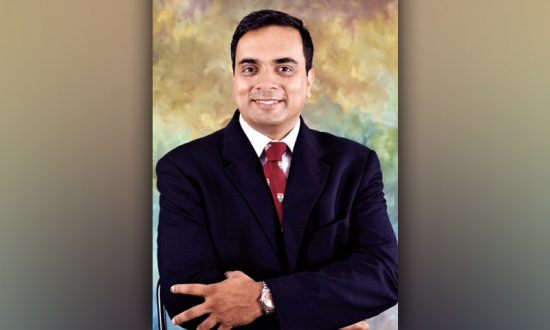Dr Tharakan, an alumnus of Harvard University and Massachusetts Institute of Technology, is a seasoned academician with experience ranging across the corporate, government, United Nations and Non-profit sectors. Over the years, he has spent a considerable amount of time volunteering to help parents and students with activities related to admissions in universities worldwide.
The COVID-19 public-health crisis and resultant economic impact have upended industries and institutions globally. Global education leaders made a quick shift to remote learning to end the 2019 academic year. Their next challenge looms ahead – enrolments for 2020. Although we are a couple of months into this pandemic, there is still so much unknown about the virus that parents and students are hesitant to believe that education on campus would be safe at least till next summer. This fear is confirmed by the fact that in a recent survey, 89 per cent of college presidents in the US have ranked student enrolments in fall 2020 and summer 2021 as one of their main concerns.
The predictive-enrolment models that leading education institutions have used to plan classes, enrolments and financials no longer hold good in a COVID-19 and post- COVID-19 world. What matters now is the ability of institutions to ensure that they can continue educating students with the same ethos in an inclusive manner while keeping them enthused about the learning process. Making sure that this is done in a financially sustainable way becomes important as tuition and fees account for 26 per cent of college revenues in four-year degree programs in public institutions and 35 per cent in private non-profit institutions in the US. The financial impact of COVID-19 will affect the ability of students to pay, and this has to be factored into their calculations.
The current enrolment number of students has not changed significantly compared to last year. However, there are indications that many students from China which accounts for a large percentage of international students coming to the US and Europe would not feel welcome in the current scenario. As the number of COVID-19 cases continues to rise, there is greater acceptance that most students would prefer the remote, online option at least until the end of the year. Students and parents are currently expecting and will very soon demand, a significant reduction in tuition fees being paid to attend courses online as this varies significantly from the regular on-campus experience. Similarly, most universities are investing heavily in technology and training faculty to ensure that high-quality online courses can be conducted for students. Innovative ways to ensure that students stay interactive and still feel part of a unique school community are also being explored by school administrations.
It is interesting to note that student’s perception and priorities when it comes to choosing a college have also changed after the onset of COVID-19. In a recent survey, 21 per cent of students changed their first choice school. The reasons cited include high cost of attendance, school being located too far from home, school located in as area with high COVID-19 threat and concerns over getting a job post-graduation. Only 25 per cent of students surveyed are mentally prepared for remote undergraduate study as against 53 per cent who are mentally prepared for on-campus study.
If most schools shift to an online mode of education for the first year, students stated that their selection criteria of which school to attend would significantly vary. In this case, they would give importance to schools with better online capabilities, lower cost of attendance and more significant job-placement resources. More than 80 per cent of students expect a considerable tuition discount if remote classes take the place of on-campus study.
The present situation can be used as an opportunity by institutions to show students and parents that they care. Schools should make a conscious effort to communicate with students and provide additional resources. Opportunities for students to interact with faculty and get a better idea of how courses would be conducted is one such example. Implementing strategies at the institution level to help students weather the financial impact of COVID 19 and prioritise equitable access. Having an easy-to-use student portal with details around specific expenses linked to a simple application process is something that would help students. Ensuring that faculty are trained in online teaching and assisting students in identifying and overcoming challenges, they face with remote learning in an organised manner will make a big difference their learning ability.
While uncertainty continues around how student enrolment in COVID-19 times will pan out, it is certain that higher education leaders who are constantly in touch with students and parents and are willing to be flexible in ensuring that the students’ needs are met, will be the ones best positioned to cater to student needs in these evolving times.
More about Dr John Franco Tharakan
 Dr John Franco Tharakan is the founder and CEO of Be-Ivy Education, an organisation that counsels, guides, coaches, trains and mentors, students and their parents to develop success habits and become high-performance individuals. Be-Ivy works hand in hand to ensure that students develop the necessary values to identify and enrol at the best universities abroad that best fits the student.
Dr John Franco Tharakan is the founder and CEO of Be-Ivy Education, an organisation that counsels, guides, coaches, trains and mentors, students and their parents to develop success habits and become high-performance individuals. Be-Ivy works hand in hand to ensure that students develop the necessary values to identify and enrol at the best universities abroad that best fits the student.
From tasks that include taking prospective students and their families on campus tours, to helping sort out CV’s of eligible students, and interviewing selected students; all of these roles gave him an insight into some of the key aspects that ‘selected’ the students who finally made it into some of the world best universities.




